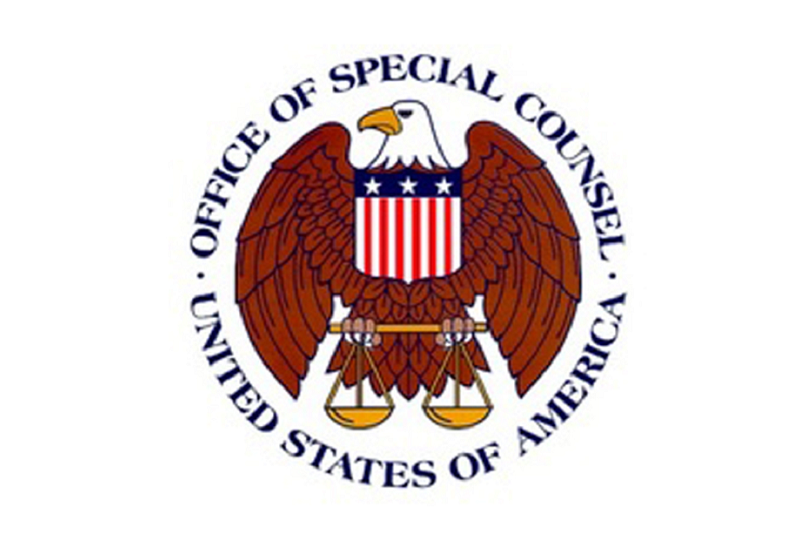BROWSE BY TOPIC
- Bad Brokers
- Compliance Concepts
- Investor Protection
- Investments - Unsuitable
- Investments - Strategies
- Investments - Private
- Features/Scandals
- Companies
- Technology/Internet
- Rules & Regulations
- Crimes
- Investments
- Bad Advisors
- Boiler Rooms
- Hirings/Transitions
- Terminations/Cost Cutting
- Regulators
- Wall Street News
- General News
- Donald Trump & Co.
- Lawsuits/Arbitrations
- Regulatory Sanctions
- Big Banks
- People
TRENDING TAGS
Stories of Interest
- Sarah ten Siethoff is New Associate Director of SEC Investment Management Rulemaking Office
- Catherine Keating Appointed CEO of BNY Mellon Wealth Management
- Credit Suisse to Pay $47Mn to Resolve DOJ Asia Probe
- SEC Chair Clayton Goes 'Hat in Hand' Before Congress on 2019 Budget Request
- SEC's Opening Remarks to the Elder Justice Coordinating Council
- Massachusetts Jury Convicts CA Attorney of Securities Fraud
- Deutsche Bank Says 3 Senior Investment Bankers to Leave Firm
- World’s Biggest Hedge Fund Reportedly ‘Bearish On Financial Assets’
- SEC Fines Constant Contact, Popular Email Marketer, for Overstating Subscriber Numbers
- SocGen Agrees to Pay $1.3 Billion to End Libya, Libor Probes
- Cryptocurrency Exchange Bitfinex Briefly Halts Trading After Cyber Attack
- SEC Names Valerie Szczepanik Senior Advisor for Digital Assets and Innovation
- SEC Modernizes Delivery of Fund Reports, Seeks Public Feedback on Improving Fund Disclosure
- NYSE Says SEC Plan to Limit Exchange Rebates Would Hurt Investors
- Deutsche Bank faces another challenge with Fed stress test
- Former JPMorgan Broker Files racial discrimination suit against company
- $3.3Mn Winning Bid for Lunch with Warren Buffett
- Julie Erhardt is SEC's New Acting Chief Risk Officer
- Chyhe Becker is SEC's New Acting Chief Economist, Acting Director of Economic and Risk Analysis Division
- Getting a Handle on Virtual Currencies - FINRA
ABOUT FINANCIALISH
We seek to provide information, insights and direction that may enable the Financial Community to effectively and efficiently operate in a regulatory risk-free environment by curating content from all over the web.
Stay Informed with the latest fanancialish news.
SUBSCRIBE FOR
NEWSLETTERS & ALERTS
The Office of Special Counsel - a Home for Whistleblowers
The primary mission of the U.S. Office of Special Counsel (OSC) is to protect whistleblowers and to promote disclosures that result in a better and more transparent government. OSC is an independent federal agency, a creation of the Civil Service Reform Act of 1978. OSC was one of the post-Watergate and Vietnam-era reforms that Congress passed to strengthen oversight and curb abuses within the executive branch. The Special Counsel, currently Carolyn N. Lerner, is appointed to a 5-year term, independent of the presidential election cycle, and can only be removed for cause.
OSC’s non-partisan mission complements the work of Inspectors General (IGs). But, unlike the IGs, OSC is specifically empowered to take action to assist whistleblowers. For example, OSC can file requests with the Merit Systems Protection Board (MSPB), an administrative court for employment issues in the executive branch, to stay actions temporarily while OSC investigates the whistleblower’s retaliation complaint. OSC also works to resolve complaints through negotiations with agencies, seeks discipline against retaliators in egregious cases, and litigates on behalf of whistleblowers before the MSPB.
Federal civil servants are reluctant to speak out without strong protections against retaliation. A 2010 study found that 62 percent of federal civil servants say fear of reprisal would factor into their decision to blow the whistle. In this uncertain environment, a revitalized OSC has played a more prominent role as a guardian of whistleblowers over the last five years. Though still relatively unknown outside of the federal workforce, OSC’s annual workload has roughly doubled since 2008, indicating that more federal employees are aware of OSC, more willing to speak out, and more confident that OSC will assist them if they do.
The vital role of government whistleblowers is exemplified by the case of a Marine Corps civilian scientist named Franz Gayl. In 2007, improvised explosive devises were killing and wounding U.S. forces in Iraq at an alarming rate. That year, the bloodiest of the conflict, roadside bombs killed over 600 U.S. and coalition forces. By 2008, total military deaths dropped to 322, mainly due to the sharp drop in casualties due to IEDs. Mr. Gayl deserves significant credit for the drop improvement.
He pressured the Pentagon bureaucracy to speed up its purchase of thousands of Mine Resistant Ambush Protected vehicles (MRAPs). Mr. Gayl knew these vehicles were best-equipped to absorb IED blasts. Years later, Ashton Carter, then-deputy defense secretary, told USA Today, “You are between nine and 14 times less likely to be killed if you were in an MRAP than if you were in a humvee.” At the time, however, the Pentagon had slow-rolled commanders’ requests for MRAPs, opting to continue to equip troops in poorly-armored Humvees.
[Click to continue reading]





